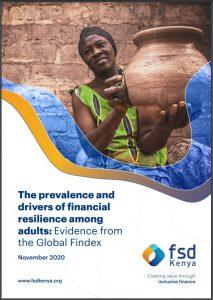BY:
The prevalence and drivers of financial resilience among adults: Evidence from the Global Findex
December 24th, 2020
Summary
The COVID-19 pandemic has laid bare the financial vulnerability of vast segments of the global population. At the onset of this crisis, dominant majorities in many countries were ill-prepared financially to weather a prolonged income shock. In 2018, for example, over two-thirds of adults in Kenya, Vietnam, Greece, Chile, Colombia and Bangladesh reported they would not be able to cover basic needs for three months in the event that they lost their incomes using just their savings or sales of assets.
This paper uses nationally representative 2014 and 2017 data from 144 economies worldwide to examine the ability of adult populations to withstand a moderate and unexpected financial disruption. Specifically, the paper examines the association of individual and country level factors with financial resilience, defined as people’s self-reported ability to access funds for an emergency within one month. Three inter-connected questions are addressed:
1. Which economies do particularly well or poorly in supporting financial resilience?
2. Is access to formal financial services for low income adults associated with financial resilience? And;
3. Which financial behaviours are associated with financial resilience?
This paper begins with an overview of the concept of financial health and its measurement, and then discusses the data used for the analysis. It next reviews patterns in the prevalence of financial resilience globally, presents results from the analysis, and concludes with a discussion of the results.
Paul Gubbins is an independent research advisor to FSD Kenya. Twitter: @pgubb @FSDKe


